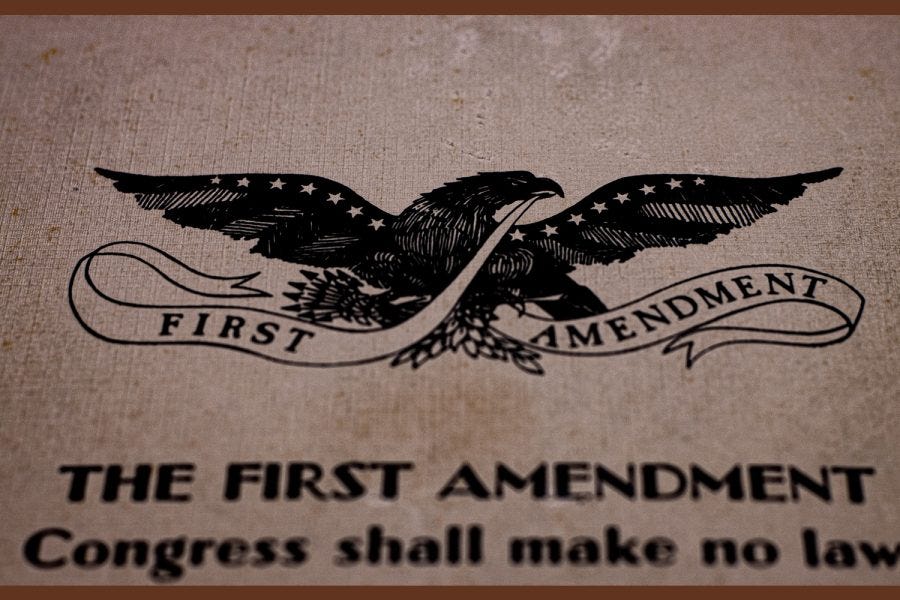‘First Amendment Symposium’ to spotlight campus free speech
Isaac Medina wrote this article for Cal State Northridge’s The Daily Sundial. It is available for republication or reference. If you think their work is important, you can support it here.

The CSUN journalism department and the University Library are hosting the “First Amendment Symposium” next week. The event aims to celebrate the themes of campus free speech and inclusivity through an open mic and panel discussions.
The first event will take place on April 7 at Matador Square, east of the University Library, from 4-5 p.m. “Free Speech in the Square” will be an open mic where predetermined students will share their thoughts on a variety of topics.
“They can talk about whatever they want,” said Elizabeth Blakey, a 10-year journalism professor at CSUN who will spearhead the symposium. “From poetry, to the Oscars, climate change, immigration, education, journalism, fake news.”
The keynote speakers for the second event of the symposium will be Carol A. Sumner, vice president for the division of diversity, equity, and inclusion at Texas Tech University and chief diversity officer, and Teresa Watanabe, vice president of special projects for the Asian American Journalist Association and a Los Angeles Times reporter for education.
The discussions will be held on April 8 at the Kurland Lecture Hall from 4-5:30 p.m. The event will also be streamed via zoom.
Other speakers will include Blakey and Shannon Carter, editor-in-chief of the Daily Sundial.
“On campuses, we want to have a culture of inclusivity,” Blakey said.
She hopes these events and the speakers will highlight the importance of speech and having people feel like they belong, no matter where they come from. She believes that the First Amendment is central to human rights and that it is important to learn from each other’s viewpoints.
Events like the ones happening next week give students more information and knowledge about the First Amendment and the concepts of free speech on campus. Blakey highlights the conundrum of freedom of speech given to the American people by the First Amendment and the consequences of hate speech on campus.
“The problem with hate speech and offensive speech on campus is that sometimes it can be deeply wounding or threatening to persons of color … women, people with gender expressions,” Blakey said.
Both events are open to CSUN students, faculty, staff and the public. Proof of vaccination or a negative test for COVID-19 taken within 72 hours of the event will be required for all in-person events.



